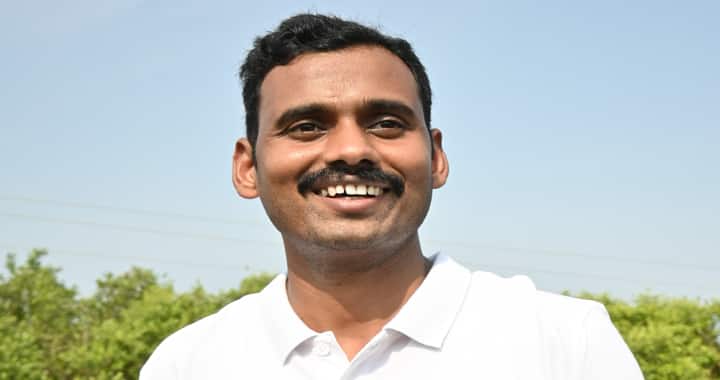

Having worked tirelessly for conservation, Bakan Jagdish Sudhakar has brought laurels for the country by becoming the first Indian to receive the prestigious UNESCO award for effective biosphere reserve management
Having made a laudable contribution in the field of conservation, Bakan Jagdish Sudhakar, an Indian Forest Officer who is the Wildlife Warden and Director of Gulf of Mannar Biosphere Reserve in Tamil Nadu, has made the country proud. He has been selected as the first Indian for the prestigious UNESCO’s Michel Batisse Award for effective biosphere reserve management.
On June 14 Sudhakar will receive the $12,000 award and deliver a lecture on his case study in Paris. The award which is bestowed once in two years in memory of Dr Michel Batisse was instituted in 2004 by the International Coordinating Council of the Man and the Biosphere (MAB) Programme of UNESCO.
The IFS official’s name was recommended for his case study titled “Development of Sustainable Livelihood and Community Based Biodiversity Conservation and Environment Protection”.
In an exclusive interview with India Narrative, Sudhakar shared his views about the award, his case study and conservation.
How does it feel to receive such a distinguished award?
It is a very proud feeling for us as an organization to get the international recognition for the work which are being carried out by the community-based organization such as eco-development committees under supervision of the Forest department. Moreover, this recognition provides a platform to showcase best practices at international level and to learn from others international members. The award will inspire us to work more dedicatedly and to aim higher and to increase the quality of our work.
Is balance between environment and development possible?
If we put in place proper safeguard and mitigation plans along with proper monitoring, then the balance between environment and development is possible. There are many successful examples of eco-friendly infrastructures projects like wildlife passages on national highways.
In view of India’s population and its aspirations, is sustainable development and growth achievable?
It is quite challenging but possible. India has few geographic advantages to harness renewable energy. Population shall not be seen as negative all the time. We need to concentrate on harnessing demographic dividend.
Your views on involving the local community in conservation initiatives.
Communities are the one who are present at the ground all the time and conservation efforts without their involvement may or may not succeed. But, conservation with involvement of the community will definitely succeed. As per our experience at the biosphere reserve, community engagement has led to saving animals through rescue. There is a precondition that communities shall be engaged constructively, incentivized properly and organized appropriately through an institutional structure. In our case, the Eco development committee is such an institutional structure.
Please share with India Narrative the essence of your case study.
The aim of the study is to conserve Gulf of Mannar’s bio-diversity while addressing the primary threats to it; create public awareness of its significance; develop community-led plastic control mechanism; integrate community development efforts with natural resources management and biodiversity conservation; to restore marine ecosystem and protect marine wildlife; to generate alternative jobs which are green; and bring about behaviour change among tourists.
The main activities involved are creating eco-friendly livelihood options to decrease pressure on marine biodiversity; women empowerment through capacity building ecosystem restoration; wildlife rescue through community participation and wildlife protection; create community-led self-sustainable marine plastic pollution control mechanism; and empowerment local indigenous people.
We have organised indigenous people in Self Help Groups and Ecodevelopment committee with 252 EDCs functioning at present; and started 6 new community-based projects — 4 ecotourism and 2 plastic check posts.
Community members are now active part of mangrove planting, coral-sea grass transplanting, invasive seaweed removal, etc; canteens at all five ecotourism points are being run by women SHGs; community is encouraged and rewarded for their involvement in wildlife rescue, for instance, 39 fishermen were felicitated and given cash rewards; and community radio station (Kadal Osai FM) is used to spread eco awareness.
By Ajit Dubey The Indian Air Force is carrying out Exercise Aakraman (Attack) over a…
Several Indian American organisations have strongly condemned the recent terrorist attack in Jammu and Kashmir's…
Prime Minister Narendra Modi on Thursday spoke to the Prime Minister of Israel, Benjamin Netanyahu…
India's Sun Pharma and Israel's Moebius Medical published new data on MM-II, a non-opioid treatment…
Reliance Industries Chairman and Managing Director, Mukesh Ambani, joined the nation in mourning the deaths…
Chinese generative AI platform DeepSeek passed on personal details of Korean users to firms in…